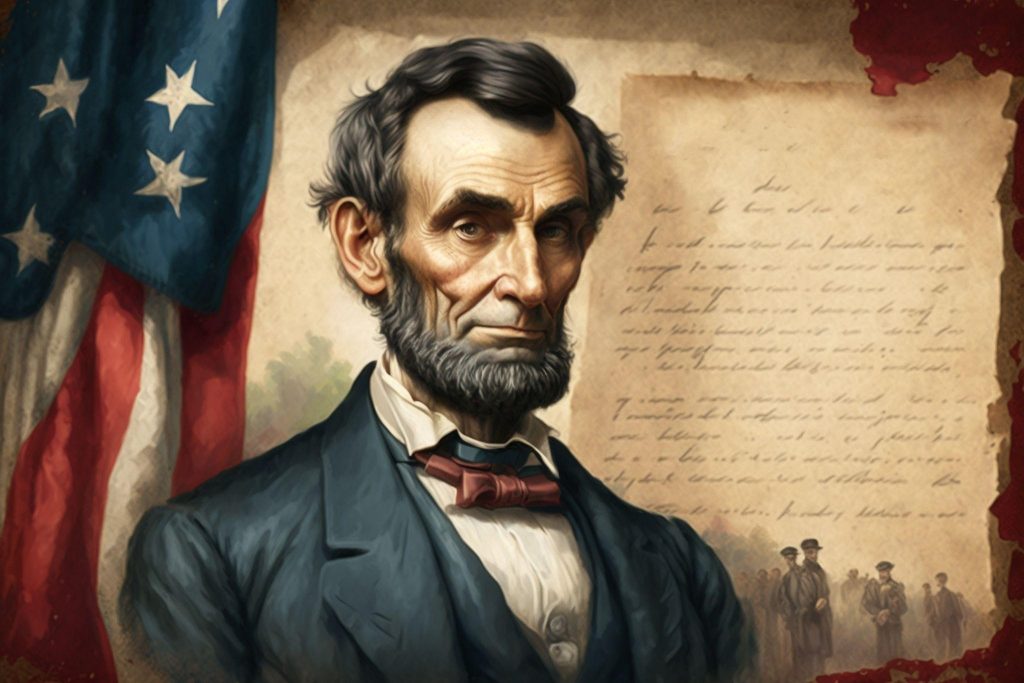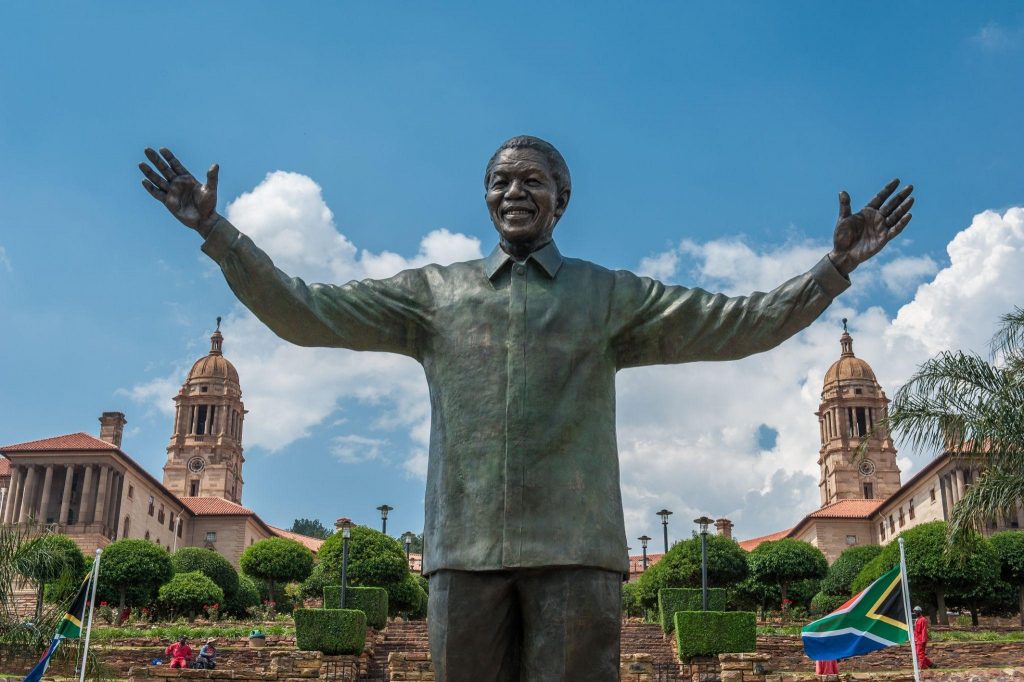In addition to helping India gain its independence from Britain and establishing the country as a socially and economically self-sufficient entity, Mahatma Gandhi has also given us a comprehensive and actionable model of servant leadership. In the age of...
In addition to helping India gain its independence from Britain and establishing the country as a socially and economically self-sufficient entity, Mahatma Gandhi has also given us a comprehensive and actionable model of servant leadership. In the age of authoritarian leadership, he proved unequivocally that authenticity, empathy, inclusion, humility, and empowerment represented the future of intelligent, authentic leadership.
“Be the change that you wish to see in the world.” – Mahatma Gandhi.
Born in October 1869 in Porbandar, India, Mohandas Karamchand Gandhi is the father of the modern Indian nation and an instrumental figure in the country’s fight for independence from British rule. Seventy-five years after his death, Gandhi continues to inspire people all over the world through his authentic leadership.
Gandhi’s leadership continues to inspire generations.
Gandhi’s leadership was as strong and resolute as it was authentic and non-violent. It rested on the triple pillars of authenticity, solid values, and discipline. Self-awareness and introspection allowed Gandhi to constantly question everything, including his own actions and beliefs.
Simplicity, honesty, and compassion were never mere slogans in Gandhi’s life. He applied these values to every facet of his existence, from his simple, homespun clothing to his daily prayers, meditation, and fasting.
Leaders must build comprehensive reservoirs of leadership references they can use to manage crises, make optimal decisions, and inspire those following them. They can achieve that objective through personal experience or the mistakes and experiences of others.
Historical leadership provides plenty of positive examples, sources of inspiration, and opportunities to learn from past mistakes. Leaders looking to study historical leadership can use it to develop strategic thinking, contextual understanding, and skills to decipher complex issues.
Even in its almost infinite complexity, Gandhi’s leadership offers valuable lessons to leadership coaching experts and leaders.
My approach to leadership is honesty-centered servant leadership, of which Gandhi is an outstanding example. I believe only authentic leadership can stand the test of time and consistency. Only by effecting profound change in a client’s character can a leadership coach hope to effect positive change in the outward behaviors and efficacy of leaders.
Understanding Mahatma Gandhi
To derive optimal lessons from studying Gandhi’s historical leadership, one must understand the historical context and social background of his exemplary accomplishments. And what a set of achievements they are.
Having received legal training in London, Gandhi practiced law in South Africa, where his experiences with racism and social strife shaped his belief in nonviolent resistance.
Following his 1915 return to India, he became the head of the Indian National Congress, an organization that played a crucial role in the fight against British imperialism.
The scope of Gandhi’s fight exceeded India’s independence. His goal was to turn India into a successful post-independence country, and he had laid out a clear, albeit complex, vision to this end.
His vision for India included:
Ridding the country of British occupation Making India socially and economically self-reliant Ending untouchability Reconciling Hindus and MuslimsGandhi was unrelenting. He adhered to his beliefs and values uncompromisingly while working on all four of his challenges simultaneously. He was a good communicator who knew his strengths and weaknesses inside out. His strategic thinking allowed him to elaborate and execute intricate leadership strategies effectively. He was always humble and compassionate: an almost archetypal servant leader.
The concept of servant leadership has always appealed to me. Meaningful leadership and personal growth best happen when one works toward a higher cause that benefits others.

Servant leadership is intelligent leadership.
Gandhi’s life and leadership are endless sources of inspiration for those who understand the essence of leadership and must identify ways in which they can help others become better leaders.
Authenticity and Character
Two of Gandhi’s core leadership abilities that allowed him to appeal to such a wide range of potential followers were his honesty and down-to-earth authenticity. No one ever doubted his authentic commitment to his goals. And his character permeated every facet of his leadership.
Simplicity and humility were two cornerstones of Gandhi’s character and leadership. He gave up materialism, focusing on the essentials of life. Gandhi was more concerned with the interests of his country and people than his own. He was the epitome of selflessness. Introspection and self-reflection served as Gandhi’s main tools of personal growth. Above and beyond being a political leader, he was a spiritual seeker. Truthfulness served as one of the core tenets of Gandhi’s authentic leadership. He spoke the truth regardless of the circumstances and potential consequences. Gandhi committed to nonviolence in life and leadership. He pursued his goals through nonviolent resistance, including fasting. Instead of acquiring power, Gandhi always focused on empowering others. By actively listening to those around him, he empowered people to take charge of their lives. Gandhi’s courage stemmed from his steadfast convictions and values. Unrelenting in the face of adversity, he pursued justice and truth even when threatened with violence.Between 1920 and 1922, Gandhi urged his fellow citizens to boycott British institutions, services, and goods as part of his Non-Cooperation Movement. He led the way by example, giving up his legal practice.
Gandhi’s 1930 Salt March showcased many aspects of his authentic leadership. He led followers on a 240-mile march to the Arabian Sea to produce salt from seawater, defying the British salt tax.
People sense authenticity in their leaders. And they trust authentic leaders. Authentic leadership is the only leadership people are willing to support consistently.
Personal Growth and Continuous Improvement
Despite being highly educated, Gandhi never stopped learning. He welcomed constructive criticism and looked to support his personal growth through self-awareness and introspection. We know about his introspective exercises due to a journal he kept, in which he documented his moral dilemmas and struggles.
Some other measures Gandhi took to foster his continuous personal growth were:
Truth-experiments. Gandhi perceived his life as a series of “experiments with truth.” He constantly tested his commitment to his principles, as well as his physical limits through fasting. Embracing simplicity. Gandhi always strove for simplicity in form and essence. He distanced himself from materialism and adopted the simplest diet and clothing style. He focused on the spiritual aspects of life instead of its superficial, material components. Embracing Change. Gandhi was always ready to adapt his beliefs and values based on his experiences. He learned from his mistakes and adopted more effective strategies to achieve his goals. Living his principles. The best leaders lead by example. For Gandhi, his principles weren’t mere theories about which he would sometimes preach. He lived them. He observed the standard he expected from others.Gandhi’s trademark leadership principle of nonviolence is a result of his contact with racism and social strife in South Africa. In 1893, Gandhi traveled by train in the country, having purchased a first-class ticket. Despite that, he was racially profiled and thrown off the train as a result. The incident shook him to his core. Instead of anger, however, it unleashed a resolute desire in him to effect change.
As a leadership coaching professional, I understand the value and necessity of personal growth through continuous introspection. Like Gandhi, I engage in truth experiments and live by the leadership principles I preach.
Lessons for Today’s Business Leaders
Gandhi’s leadership principles are timeless. They apply to modern leadership as well as they applied to leadership during Gandhi’s life. The visions and strategies that Gandhi created and applied may need adaptation, but they, too, work well in the context of modern leadership.
Gandhi’s approach to leadership carries a bevy of actionable lessons and insights for those willing to study it. Many of its core principles are present in those of the brand of intelligent leadership I espouse. Here are a few examples:
Empathy. Empathy is an indispensable ingredient of servant leadership. Leading by example. Effective leaders always model the behaviors they expect of their reports. Inclusivity and employee empowerment are two cornerstones of effective intelligent leadership. Self-awareness and self-reflection. Self-awareness allows leaders to identify their strengths and shortcomings and make optimal decisions. Inspiring a shared vision. A shared vision lends direction and clarity to leadership. Sustainable practices. Sustainability is as important in leadership as it is in other aspects of a business. Non-transactional communication. Modern leadership values constructive, nonviolent, and non-transactional communication.
One should never underestimate the power of example.
These lessons align perfectly with the core tenets and teachings of intelligent leadership.
Applying Mahatma Gandhi’s Wisdom
Leaders can directly apply many of Mahatma Gandhi’s core leadership principles to their leadership style. Leading with empathy never goes out of style, as its benefits toward employee empowerment are indisputable.
Servant leadership, the style that perhaps best describes Gandhi’s leadership, has gained widespread acceptance over the more transactional, top-down leadership style of the industrial era.
Humility, self-reflection, inclusivity, and patience are all leadership virtues that play significant roles in defining the successful leadership of the post-industrial age.
Mahatma Gandhi was well ahead of his time, not only in achievements and ideals but also in leadership efficacy. The successful leaders of tomorrow will find it makes perfect sense to follow Gandhi’s example by embarking on a journey of personal growth and authentic leadership.
Mahatma Gandhi defined, applied, and executed intelligent leadership well before the world knew and understood it as such. In an era of top-down authoritarianism, he proved that empathy, humility, self-awareness, and inclusivity were leadership virtues that could produce impressive results.
Authenticity, character, and an unwavering focus on personal growth were among Gandhi’s leadership strengths, helping him achieve deeds that have had a huge impact on the history of India and the world as a whole.
From the perspective of leadership coaching, Gandhi’s leadership is a litany of lessons and positive examples leaders can use to build their reservoirs of positive leadership references and effective leadership traits.
The post Learning from Mahatma Gandhi: A Time-Tested Path to Authentic Leadership appeared first on John Mattone Global, Inc..















